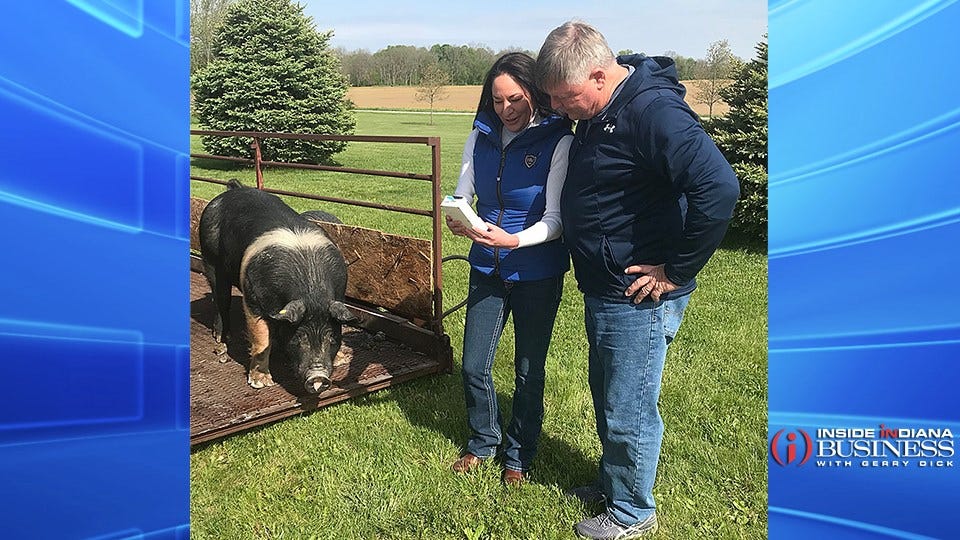Startup Using AI to Improve Animal Breeding
 (photo courtesy of Verility)
(photo courtesy of Verility)
Subscriber Benefit
As a subscriber you can listen to articles at work, in the car, or while you work out. Subscribe NowA startup in Hancock County is using artificial intelligence to help livestock farmers improve their animal breeding efforts. Verility LLC has developed a device called Fertile-Eyez, which it says allows users to get a rapid, accurate assessment of livestock semen and ovulation samples, a process that has historically been very difficult and expensive to perform. Chief Executive Officer Liane Hart says the technology will help farmers improve conception rates, which will not only improve profitability, but also add meat to the supply chain.
In an interview with Inside INdiana Business, Hart said there are many hurdles to doing these kinds of assessments.
“The tools that are in the market can be very difficult to use and it’s a very difficult analysis to do anyway,” said Hart. “So, the tools that are out there, it’s somewhat archaic, but they can be very expensive, very cumbersome, large machinery on lab top tables. There’s also the fact that they can be very time consuming. It also sometimes isn’t even done because of all of these things. There’s labor shortages. There’s just lack of time, lack of resources to purchase the nice machines so you don’t have to spend all the time looking through a microscope.”
The technology was first developed at Brigham and Women’s Hospital, a nonprofit teaching affiliate of Harvard Medical School. It was originally developed for humans, but was later studied at Purdue University for potential application in livestock, initially with boars.
Hart says the device’s ability to analyze cell morphology – or the makeup, size and shape of a cell – makes its analysis very accurate. She says a study recently conducted at Purdue University showed the device is positively correlated with current gold standards related to boar semen samples.
Hart says there is a non-conception rate among animals that ranges from 15% to 50%, depending upon the species of animal.
“This leads to misses as far as conceiving is concerned, which means there’s a downstream effect in our pipeline of animals and our meat-edible protein into the food supply is diminished because of that,” she said. “So, if we can raise the bar, that adds not only more profitability back to the producer, even if it’s 1%, 2%, [or] 5%, but it also adds many tons into our food supply chain.”
Verility is initially focusing its efforts on swine, which Hart says have more breeding touchpoints in a given year, allowing the company more opportunities to showcase the benefits of the device. The company has partnered with The Maschhoffs, a top pork producer in the U.S., as well as its technology-based sister company Acuity, to further develop the device.
“We also have been in contact with the Purdue Foundry and also the Purdue Animal Sciences Department, who has also allowed us kind of that guidance and network with other swine experts and also the use of a laboratory just to kind of bring this forward in the swine market with our first step in boars and testing sperm quality,” said Hart.
Hart says the next step is to develop a beta prototype of the Fertile-Eyez device and test it out in the field at various locations throughout the country. She says the entire development process, from obtaining funding to putting a device into the market, is expected to take about two years since Fertile-Eyez is considered a veterinary medical device and does not need approval from the U.S. Food and Drug Administration.
Hart says the technology has the potential to expand to other food animal species, as well as bring breeding benefits for non-food species such as dogs and horses. She says because it deals with cell morphology, the technology could be used in other areas, such as bacteria and viruses.
Verility says it is currently seeking seed-stage funding for its next development phases.
Hart says there are many hurdles to doing these kinds of assessments.
